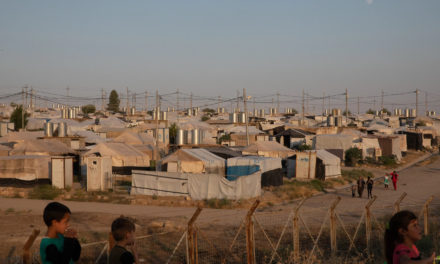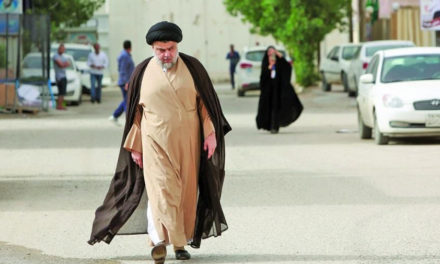No one who holds, or expects to hold, the office of prime minister in Iraq can ignore the reality of the power and influence which both Iran and the United States wield over the affairs of the country. In the same vein, some politicians in Iraq are of the view that Iran has always been and remains the best regional partner and ally, the sincerest supporter of counter-terrorism, and the strongest player on the Iraqi scene.
From this standpoint, it may be easier to understand the pro-Iranian stance more recently adopted by certain Iraqi politicians. Moreover, some observers believe that no politician, in the person of the prime minister, can succeed in governing Iraq without Iran’s help. It therefore follows that if the prime minister-designate, Adnan Al-Zurfi, is serious about becoming the de jure prime minister, he must first win the approval of the Shi’a parties in parliament.
It can perhaps be posited that the recent psychological war in the guise of the threat of US military operations against Iraq’s Popular Mobilization Forces (PMF) units, and which according to a report in the New York Times, is more akin to war propaganda, is in reality part of the efforts by the U.S. to strengthen the political support for Adnan Al-Zurfi and a means by which to exploit the fears of Shi’a parties, such as Fatah Alliance, of an impending war in order to force them to accept Zurfi.
There is little doubt that the U.S. has taken advantage of the chaos caused by the worldwide corona pandemic and has undertaken, at the minimum, wide ranging political and military measures in Iraq. The recent transfer of U.S. troops from their bases at Kirkuk K1, Qaim and Qayyarah to Ein al-Assad and Erbil is quite possibly indicative of this.
On the Iranian side, the chief of staff of Iran’s armed forces, Major General Mohammad Bagheri, announced that his country would respond in like to any aggression by the United States aimed at undermining the security of the Islamic Republic. This is viewed by many observers as a prelude to a possible U.S. attack on PMF units in Iraq.
As far as the PMF factions are concerned, and in particular the Hezbollah Brigades, they have posted a warning on their official website cautioning the U.S. president against any acts of aggression against any of their factions.
The real crux of the matter is whether a war will confine itself to Iraq only, and more specifically, to PMF targets. In light of the above, and in view of recent pronouncements by Iran’s Major General Mohammad Bagheri, this is unlikely to be the case. Regional observers opine that it will be a comprehensive war between the Americans and the Iranians and will have severe consequences for the countries of the region, especially Iraq, and those neighbouring the Persian Gulf.

Hayder Al-Khafaji
Hayder Al-Khafaji is a researcher on Middle Eastern affairs with a specialist focus on Iraq-Iran relations. He holds a postgraduate certificate in Islamic Studies from Birkbeck College, University of London, and a master’s degree from Middlesex University where he is currently completing a Professional Doctorate in Muslim cultures.










